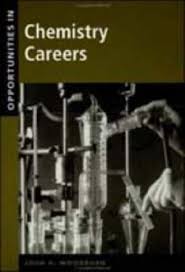

 |

|

The average rating for Taking things apart & putting things together based on 2 reviews is 3.5 stars.
Review # 1 was written on 2014-10-04 00:00:00 Thomas Cope Thomas CopeTrying to make the invisible, visible Almost all of this is about biochemistry where the molecules are large, complex and of overriding importance and interest to human beings. In particular Philip Ball, who is a science journalist and formerly an editor of Nature, one of the most prestigious science journals in the world, wants to show "the molecular processes that govern our own bodies are not so different from those that chemists--I would prefer to say molecular scientists--are seeking to create." His further intent in this modest little book is to counter the "negative connotations of and " in the public mind and to help us "appreciate what chemistry has to offer." Ball observes that "molecules" do not yet have negative connotations, and he wants to keep it that way. (pp. vi-vii) Ball demonstrates just how really complex the molecular world is, and how the technology is becoming further removed from our everyday world, while the effect on our world grows enormously. The text does not consist of "stories" as such, but rather a broad survey of molecular science, including what's happening in exciting new fields such as molecular electronics, and how new uses for molecular knowledge is transforming older fields such as paleontology, computer science, information theory, forensics, etc. Ball provides some material on cellular construction and metabolism, augmented with drawings from his own hand. He gives us a feel for the invisible, tactile reality of molecular interactions, in which surface structure is paramount. He ends the book with a brief look at the prospects for molecular and DNA computers. There is unfortunately a kind of veil-like quality thrown between the molecular world and the reader's perception of that world by the very fact of its invisibility that I don't think Ball's text overcomes. It is curious, but it is not a question of readability so much as a question of how to present these very complex structures and ideas in a way that the reader can absorb in some concrete fashion. Ball begins with some dialogue from a fiction set in a Dublin pub about "mollycules"; however this does not help. Indeed I could not see the point of the exchange. At any rate Ball abandons it after the first few pages. The exposition following that, about what molecules are and how they differ technically from atoms, was one of the strengths of the book. However much of the rest of the book is like a first year survey course of various topics in molecular science, a very diverse subject, but without any insistence on the mastery of fundamentals. This is good, I suppose, and Ball's intent, but since I know little about chemistry, I was left not really appreciating a lot of the text. I express this as more a failing on my part than a criticism of Ball's efforts, and to warn the reader that some serious interactive and imaginative work will be required! Ball does indeed go to great lengths to make the visible real, not only with his drawings, but with "photos" from the "scanning tunnelling microscope" while using other "representations" to make the technically invisible, "visible." One thing that I felt very strongly in reading this book was the sense of frustration that molecular engineers and others in the world of nano technology must feel when dealing with objects so very, very small. I had the sense that somebody was crying out, "My world for a pair of molecular tweezers!" I suspect when they get those tweezers, our world is going to change enormously. --Dennis Littrell, author of "Understanding Evolution and Ourselves" |
Review # 2 was written on 2020-02-07 00:00:00 Thomas Barton Thomas BartonPretty interesting and mostly very readable and well-written. Also, it is short enough that reading it is not a big commitment. It serves as a nice overview of many of the most interesting aspects of chemistry, molecular biology, and nanotechnology. There were a few places where he got bogged down with too many terms and details, and there were some places where I suspect the book is out of date, but overall it is short and interesting. |
CAN'T FIND WHAT YOU'RE LOOKING FOR? CLICK HERE!!!